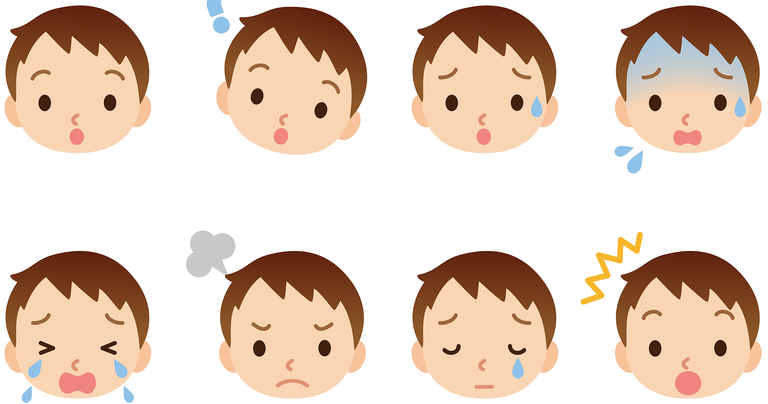Hello friends, today I will talk about how emotions can affect children and how to help them. I hope you enjoy this content
source

A medida que los niños crezcan, podrán comprender mejor las emociones de cada uno y cómo enfrentarlas, ya sean de alegría, miedo, tristeza, enojo, entre otras.
Emotions significantly affect all people, so it is reasonable that they also affect children, even when they do not have an exact knowledge of the emotions they have, since children can express an emotion, but not put the correct name or know how to act in a situation they do not know. It is important that parents, guardians or guardians work on all the children's emotions, so that they learn to know each one, what their origins may be and how they may also affect third parties. As children grow, they will be able to better understand each other's emotions and how to face them, whether they are joy, anger, sadness, fear, among others.
Ejemplo de como un padre debe reaccionar ante una emoción negativa.
Example of how a parent should react to a negative emotion.
Andrés was a 5-year-old boy who wanted to go out and play with his friends, but since he had not finished the homework, the parents told him that he had to do his homework and then he could go play. Andrés began to cry, to see the parents with ugly faces and to say many unpleasant words to them. The parents, seeing their son's reaction, instead of continuing with the punishment, decided to wait for him to calm down and talk to him about the gestures he had, that he should not bother or say bad things because he could hurt other people and that They were not forbidding him to play, but first he had to fulfill his duties.
When teaching children, each of the emotions is also educated in values, so that they are children and people in the future, responsible, happy, fun, humble and sociable. At first, children will not understand many circumstances, but it is the duty of parents to guide them in the right way.
That was it, thank you very much for reading, I hope it has helped you and I would greatly appreciate your support in this adventure. Regards